The next few weeks are crucial to the futures of rural farms impacted by COVID-19 – The Tennessean
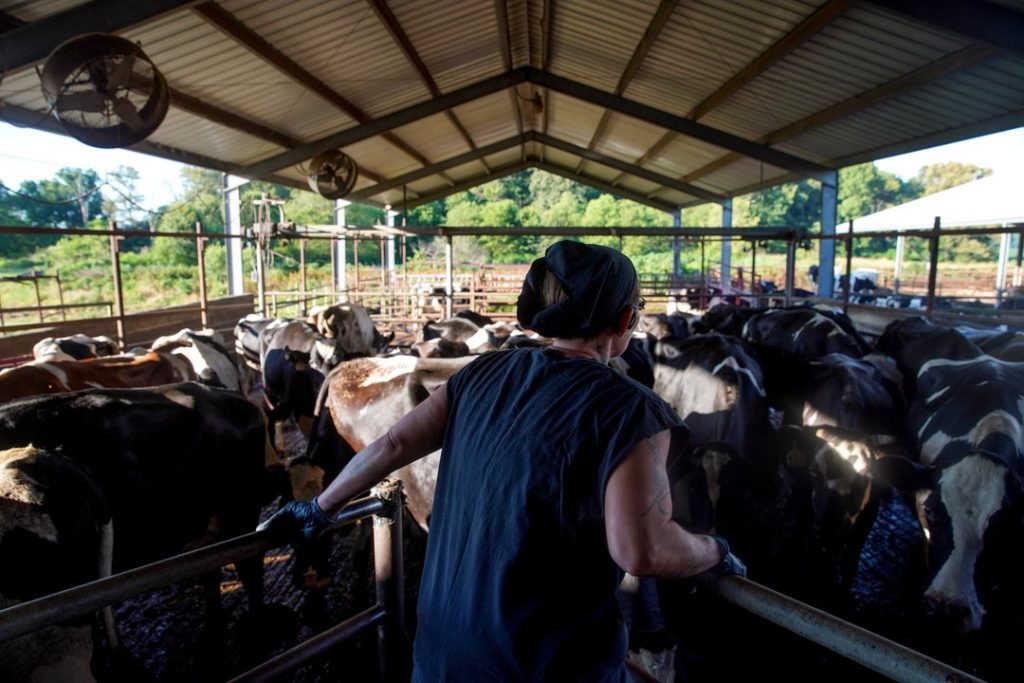
The novel coronavirus pandemic dried up G & G Family Dairy’s sales, taking with it the funds needed to pay for feed and processing costs. But the dairy’s 160 cows kept producing milk, so over the last three months, Cassie Groves and her husband Randall Groves watched more than $125,000 in raw milk go down the drain.
“We never had any trouble up until COVID with selling our milk, because Nashville (restaurants) took most of it,” Cassie Groves said. “We never had to dump (milk). We never had to worry about how we were going to pay for feed for the cows.”
Now, the future of the family farm in tiny Orlinda, Tennessee, hangs in the balance. Nearly all of G & G Family Dairy’s clients — restaurants and coffee shops in the Nashville area — shuttered in late March as the pandemic spread through middle Tennessee. Limited sales at the farm and to local grocery stores weren’t enough to make up for the loss.
For some rural Tennessee farms like G & G Family Dairy, what happens in the next few weeks will determine their survival. Others are sifting through their business plans for pieces that still make sense in a socially distanced world. Some face difficult decisions to cut back production.
Community members have raised about $32,000 to help save the Groves’ farm, but Cassie Groves said if they can’t bring in another $93,000 in the coming weeks, the farm will have to close.
“We feel like we have hope because there’s been so many people that want to support us that come to the farm,” she said. “They’re buying our milk in the grocery stores now. They’ve donated to the GoFundMe. So, so many people. But we’re still so far from our goal.”
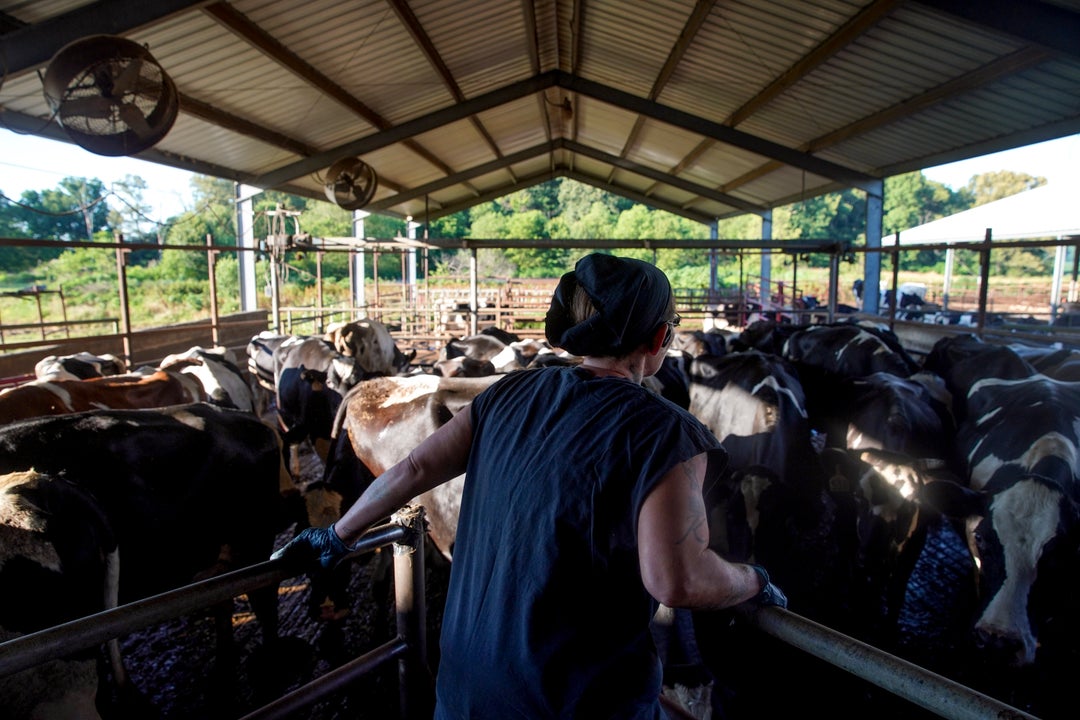
A delicate balance for agritourism
The pandemic continues to rock Tennessee’s tourism industry, and rural tourism has not been spared.
Bart Gilmer, owner of Falcon Ridge Farms in Toone, spent the last several years transforming the farm into a thriving agritourism business with several annual events.
This year, field trips that would have brought about 1,500 students to the farm during springtime were canceled as schools closed. Gilmer canceled the farm’s Easter Festival, its second-largest public event for the year. May’s pick-your-own berries days were wiped from the calendar. Family reunions and other private events have all but evaporated.
“It’s been devastating to that portion of the business, and we’re just thankful that we’re diversified and can help make up the damage through another avenue,” Gilmer said.
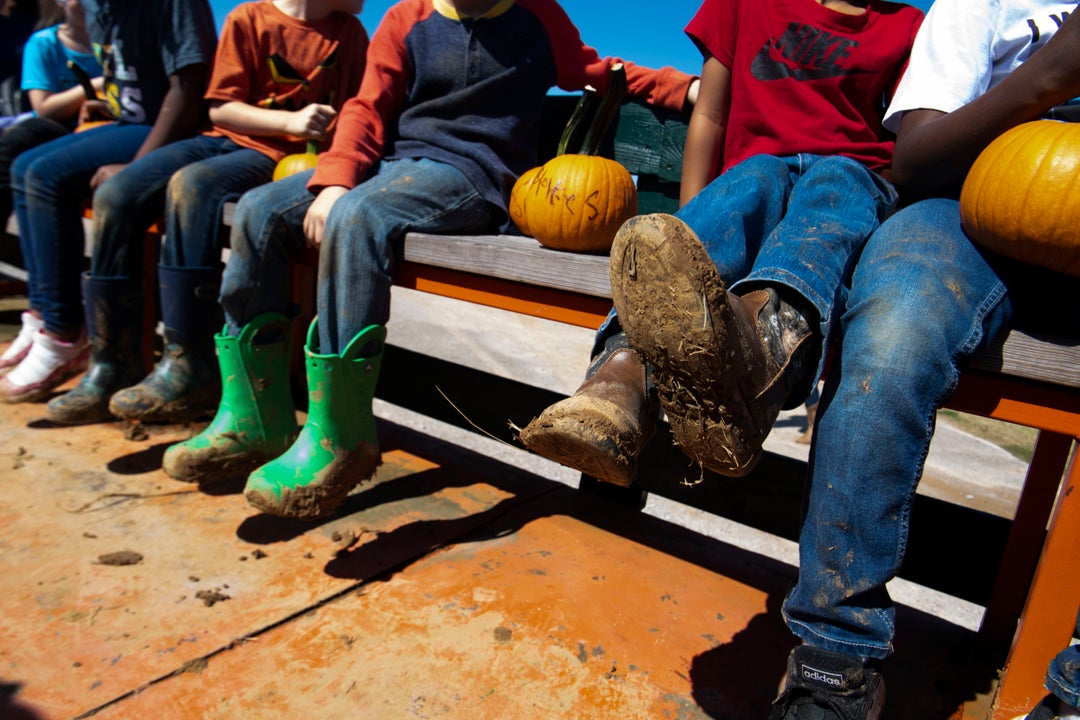
Summer is typically a slower season for the farm’s entertainment portion due to the heat, Gilmer noted. Now, he and his family are focused on selling produce and planning for Falcon Ridge Farm’s annual Fall Festival, which typically brings in about 30% of their annual income.
Gilmer is in problem-solving mode: If school field trips are canceled again, he might be able to deliver pumpkins to the schools instead of the students choosing their own at the pumpkin patch. He’s considering virtual field trips.
“We’re just trying to plan ahead and prepare for the worst and hope for the best,” he said.
Agritourism — inviting the public onto farms for entertainment — is a growing trend among Tennessee farms. The Tennessee Agritourism Association lists 79 member farms on its website.
In a socially distanced world, agritourism can be a lifeline for farms hit by disruptions to their supply chains, but it’s a delicate balance.
Noble Springs Dairy, a Franklin goat farm and creamery run by Dustin Noble and his wife Justyne Noble, saw a significant drop in sales for their goat cheese and milk during what would normally be their peak selling season.
“The timing couldn’t have been any worse,” Dustin Noble said. “If it happened in November, I would still be concerned, but we wouldn’t be sitting on as much extra product as we are right now.”
Usually, about 50% of their products go to restaurants and hotels in Nashville. Without that business, they’re running out of places to store their surplus products.
Noble Springs Dairy’s farm and creamery tours shut down for several weeks as state officials encouraged people to stay home to curtail the spread of the virus, but once the state began to slowly reopen, these tours became the farm’s “saving grace,” Dustin Noble said.
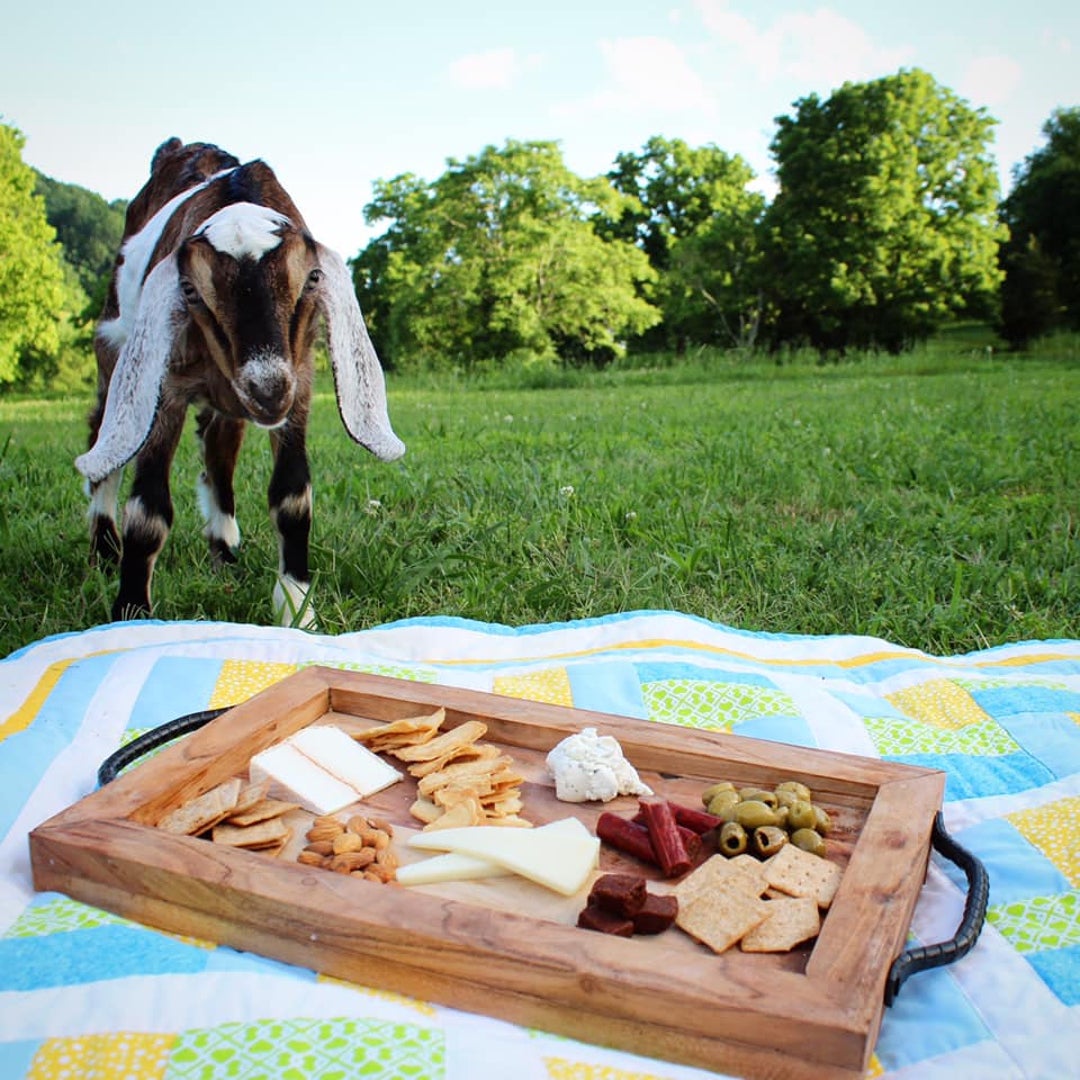
Social distancing isn’t an issue on the 230-acre farm, he explained, and they’ve begun offering some of their extra cheese on cheese boards for on-site picnics. It’s not enough to solve all of their worries, but it helps.
Over the next few weeks, Dustin and Justyne Noble will take a hard look at the numbers and decide whether they need to cut back on production and the number of goats they raise to maintain the business they’ve nurtured for 11 years.
“We may have to scale back, which is going to make things tough to get by on less income,” Dustin Noble said. “With the number of animals we have, we have to be continually selling product to be able to continually maintain those animals and afford the labor cost of milking and feeding and everything.”
Farm-to-table offers salvation for some
Some farms that switched to selling produce and meat directly to consumers found that portion of their businesses thriving over the last three months as coronavirus-related closures of food processing plants translated to less variety on grocery store shelves.
Smyrna-area farmer Lauren Palmer went from staring teary-eyed at a dumpster full of sprouts that would usually be bound for restaurants in March to watching the waiting list for Bloomsbury Farm’s Community Supported Agriculture program balloon to 150 people just a few weeks later.
Community Supported Agriculture (CSA) programs sell curated boxes of produce from local farms directly to customers, usually as a subscription. For farmers like Palmer, box sales became a glimmer of salvation and a potential new focus for business moving forward.
“That’s never happened ever before,” Palmer said of the waiting list. “We usually don’t fill up until a couple weeks in, and we filled up immediately and then had people just still begging to be on the list.”
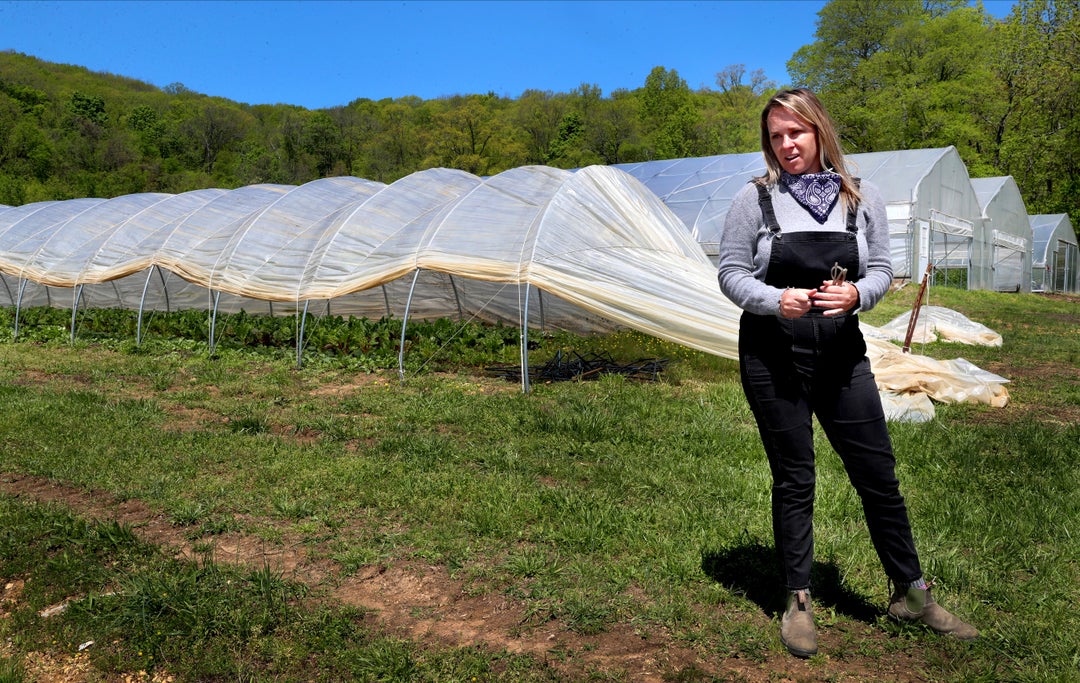
Palmer’s herb and sprouts sales took a major hit as the pandemic shut down her clients’ properties. But booming CSA box sales and produce sales at the farm helped offset that loss and cut down the amount of food that would otherwise go to waste if left in the field.
At Falcon Ridge Farms, produce and CSA sales are helping make up for significant losses in tourism revenue. Gilmer said their CSA program has “seen a big upswing” in the last six weeks as people seek out local food.
Dustin and Justyne Noble are also offering their milk and cheeses directly to consumers, but shipping costs for perishable products like cheese limit their reach. Online sales are holding steady, though, for non-perishable goods like the goats’ milk soaps and lotions the Noble family crafts at their farm.
But for farmers like the Groves, pivoting entirely to consumer sales wasn’t easy. At the height of the pandemic’s impact on their sales, the Groves family went from selling about 4,000 gallons of milk per week to about 250.
Stan Butt, executive director of the Tennessee Dairy Producers Association, said dairy farms that already had established markets outside of the restaurant business recovered more quickly from coronavirus setbacks.
School closures and fluctuating milk prices hindered the dairy industry as a whole for about a month, he said, but most dairies are now on the mend. G & G Family Dairy is one of a handful of Tennessee dairies that both produce and process their milk, and they are also among those that suffered the biggest losses.
“(G & G Family Dairy) is probably the worst hit of any when it comes to the producer-processors,” Butt said.
Cassie Groves said she and her husband have “exhausted all financial avenues.”
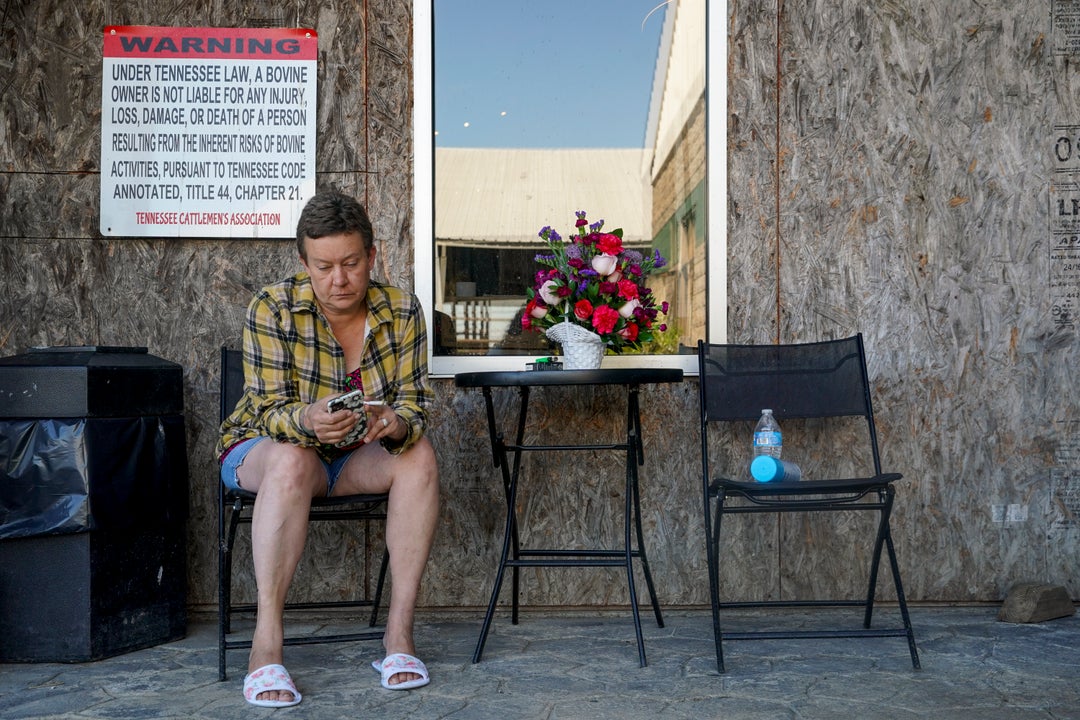
Feed costs for the animals went on credit cards and quickly ballooned to about $50,000 in debt. Cassie Groves worked at the local Piggly Wiggly for a short period to bring in money to help cover the farm’s payroll costs. A florist by trade, she is also selling floral arrangements to raise money for the farm. Though the GoFundMe has since been shut down, G & G Family Diary is still accepting donations. They’ve hosted fundraisers, and a customer has planned another for late June.
They’ve considered applying for loans, but facing more debt isn’t an option.
“To us, we can’t go in debt any farther,” Cassie Groves explained. “We can’t see the light at the end of the tunnel right now.”
Though the next few weeks will bring difficult decisions and turmoil for some of Tennessee’s rural farmers, some like Gilmer and Palmer are heartened by the outpouring of community support for local food.
“Buy local food,” Gilmer said, “not just fruits and vegetables. There’s local farmers that raise meat, local farmers that raise eggs and things like that. Really try to seek us out. Of course, we can’t market to compete with the big box stores, so it takes a little more work on the front end, but if you will support your local farmer, I don’t think you’ll be disappointed.”
Reach Cassandra Stephenson at ckstephenson@tennessean.com or at (731) 694-7261. Follow Cassandra on Twitter at @CStephenson731.
Published 6:00 AM EDT Jun 28, 2020
